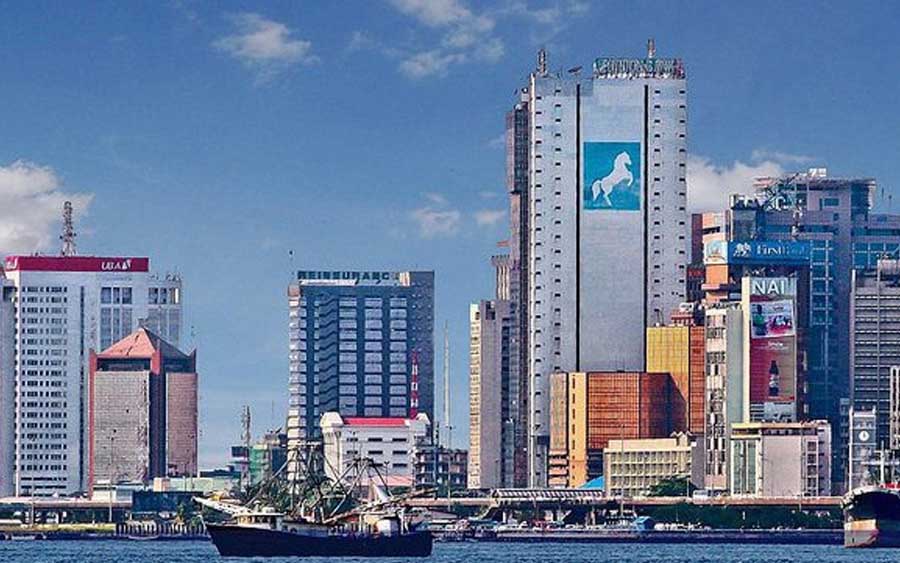Banks and other financial institutions posted a 24% GDP Growth Rate for the First Quarter of 2020.
Financial Institutions in Nigeria reported a GDP Growth rate of 24% for the first quarter of 2020 compared to 22.3% in the last quarter of 2019 and a contraction of 9.21% in the corresponding quarter of 2019. This is according to data from the National Bureau of Statistics.
Financial Institutions sub-sector include commercial banks, merchant banks, micro-finance banks, and FinTechs, and other non-banking financial institutions.
Based on the data, Financial Institutions retain their position as the fastest-growing sub-sector in the Nigerian Economy. Growth in the sector remains miles ahead of every other sector in the economy and higher than the overall GDP growth rate of 1.87% for the quarter. The closest to Financial Institutions Telecommunication and Information Sub-sector at 9.71%.
Bank Q2 Results
Apart from data from Commercial Banks, other financial institutions not quoted on the Nigerian Stocks Exchange do not publish their reports in public. However, available data from some of the largest banks in Nigeria reveal growth in gross earnings was recorded across board.
About 8 of the banks that published their first-quarter results posted about N836.2 billion in gross earnings compared to N755 billion representing a 10.8% growth. Most of the growth was from the merger between Diamond Bank and Access Bank.
Effects of Covid-19
Several reports published in Nairametrics suggest banks face headwinds from the Covid-19 Pandemic. An Augusto & Co report assessed the impact of the coronavirus pandemic on the asset quality of the Nigerian banks. According to details in the report, banks are significantly exposed to several sectors which include the oil and gas sector, manufacturing, real estate, public sector, construction, and general commerce.
It mentions that about 47% of the banking industry’s gross loans are in foreign currency. The report suggests that the coronavirus pandemic will weaken the asset quality of Nigerian banks in view of the impact on State Governments’ finances, purchasing power of households and the performance of businesses. Although the degree of impact will vary across different sectors, the key sectors that will bear the brunt are oil and gas (upstream), real estate, construction, transportation (aviation), and manufacturing (non-essentials).
CEO of one of Nigeria’s top banks, Zenith Bank Plc, Ebenezer Onyeagwu, also commented on the effect of the Coronavirus on the sector. Speaking to CNBC Africa, Onyeagwu stated that one of the most immediate impacts of the Pandemic is the fact that the oil price crash will have negative implications for banks’ revenue targets.
“In terms of banking, the drop in the price of crude is affecting directly the exposure that banks have created in the oil and gas sector. Revenues are challenged now, no doubt. And you have a situation where revenues are challenged, the obvious next step will be for you to restructure,” Onyeagwu stated.
Twisted Irony
The data is symptomatic of a twisted economy altered by several heterodox policies that have kept interest rates high for banks and lending short for SME’s and Real Sectors of the economy. With several sectors in the country posting a negative GDP growth rate in the first quarter of 2020, the outlook for the second quarter portends an even worse outcome for the rest of the economy. While banks have weathered tougher challenges in the past a weaker than expected economy will likely stunt its growth in the coming quarter.
More recent CBN Policies of stiffer CRR and 65% loan to deposit ratios imposed on banks to lend to the private sector. The CBN was meant to meet on Friday for its monetary policy meeting for May but postponed till Thursday. Some analysts point to a softer monetary policy stand that could see it relax its CRR and LDR requirements. This is assuming the latest GDP numbers do not reinforce its resolve to get backs to support the economy following the impressive GDP growth rate.
Source: Nairametrics






